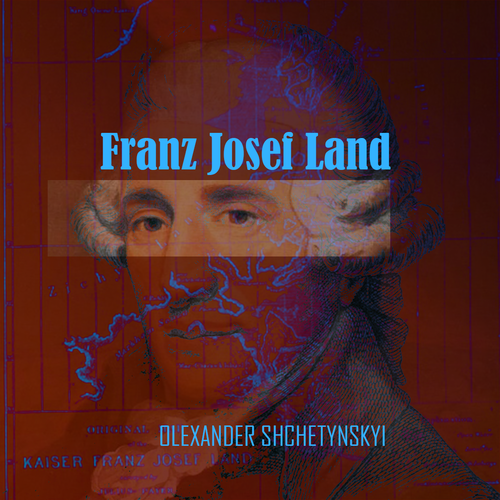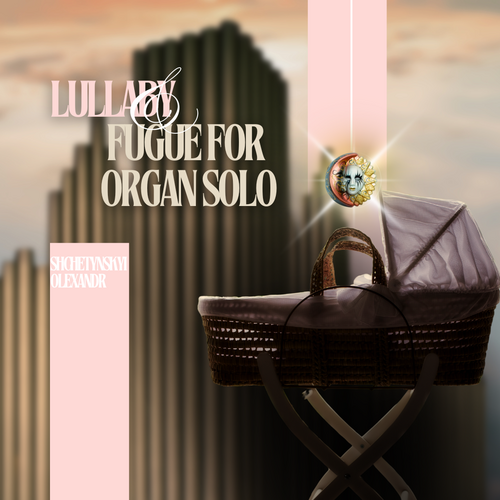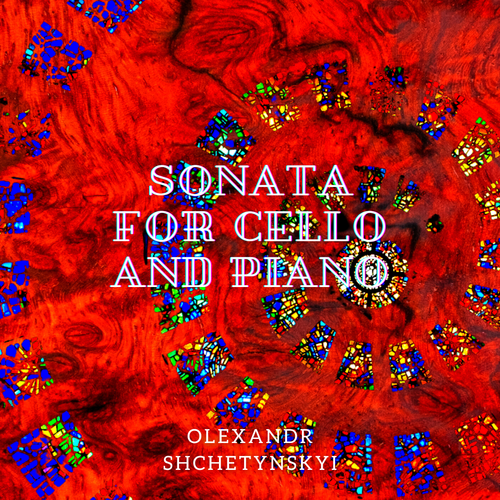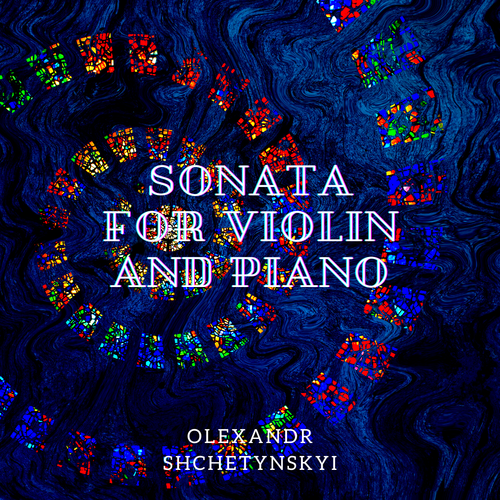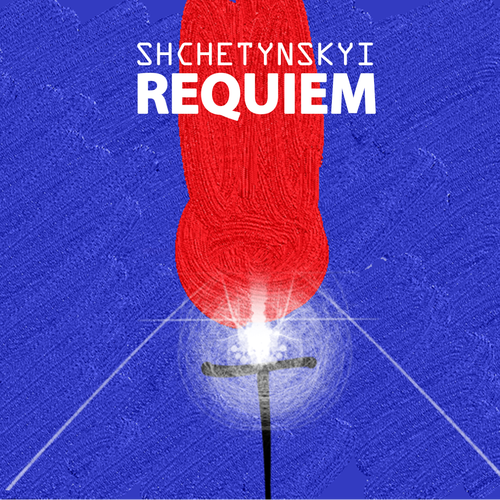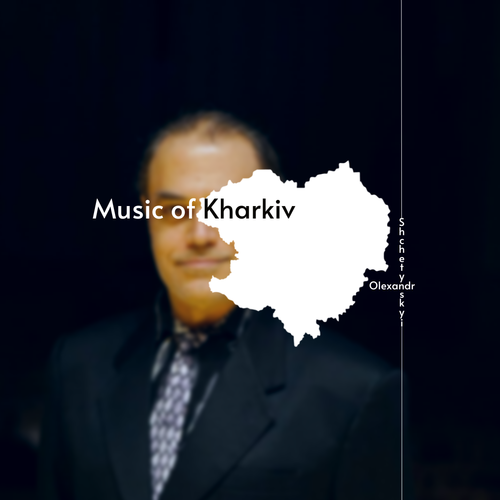Oleksandr Shchetynskyi (1960, Kharkiv) – Ukrainian composer, cultural and public figure, and art theorist.
From a very young age for Oleksandr Shchetynskyi, music has been an integral part of his life. The first Shchetynskyi`s music lessons at school age were not quite systematic, but in the 6th-7th grade, he himself was looking for sheet music and books related to contemporary music and tried to create in the same current spirit. In the 8th grade of the Kharkiv secondary specialized music boarding school, Shchetynskyi came to the theoretical department as a convinced avant-garde artist. After leaving school, he studied composition (class of Valentyn Borysov) at the Kharkiv State Institute of Arts (now Kharkiv Kotlyarevskyi National University of Arts ), from which he graduated in 1983. He improved his skills at various courses, master classes, and lectures (including Witold Lutoslavsky, Boguslav Sheffer, Krzysztof Penderecki, Edison Denisov, and others). In the Krakow Academy of Music in 1991 he graduated from computer music courses.
An important role in his development was played by the composer Valentyn Bibik, with who the composer enjoyed many years of friendship. In 1991 - 1995 Shchetynskyi taught at the Department of Composition in his alma mater, in 1995 he conducted a series of lectures at the Kyiv State Conservatory (now the National Music Academy of Ukraine), conducted composer master classes (Ohrid, Macedonia, 1999 and 2001). At the end of the 80`s Oleksandr Shchetynskyi was one of the organizers of several contemporary chamber music festivals in Ukraine and abroad.
Laureate of numerous international competitions for composers. Laureate of the All-Ukrainian Prize in Musicology PRIMUS INTER PARES-2018 for the book "Lines. Crossroads. Accents. Composer Leonid Hrabovskyi". Participant in many international festivals, a member of the Ukrainian Union of Composers.
In the creative work of Oleksandr Shchetynskyi there are more than 100 pieces in various genres and performing groups - operas, symphonic works, concerts, chamber and solo pieces, and music for films. They are performed in most European countries and North America by world-famous musicians.
Oleksandr Shchetynskyi is a postmodernist, a structuralist who seeks to find a metastyle that combines stylistic elements from different eras - from baroque, classical, and late romantic allusions to harsh atonality and sonoristics. Modern spirituality has become the impetus for many vocal, instrumental and operatic works. One of the best author's incarnations of biblical themes is the piano piece "Prayer for the Chalice", the sublime style reigns in the chamber opera "The Annunciation", the work "Baptism, Temptation and Prayer of Our Lord Jesus Christ" for bass soloist and five instruments is sustained in the same mood. These works are written in soft tones and mostly quiet sonority, intended for the reflection and empathy of the listener. In contrast to the monumental canonical opus, Requiem continues the European tradition of sacred music. Oleksandr Shchetynskyi also refers to the poetry and philosophy of Hryhoriy Skovoroda, in particular in the symphony "Know Yourself" to texts from the philosophical works of Hryhoriy Skovoroda.
From a very young age for Oleksandr Shchetynskyi, music has been an integral part of his life. The first Shchetynskyi`s music lessons at school age were not quite systematic, but in the 6th-7th grade, he himself was looking for sheet music and books related to contemporary music and tried to create in the same current spirit. In the 8th grade of the Kharkiv secondary specialized music boarding school, Shchetynskyi came to the theoretical department as a convinced avant-garde artist. After leaving school, he studied composition (class of Valentyn Borysov) at the Kharkiv State Institute of Arts (now Kharkiv Kotlyarevskyi National University of Arts ), from which he graduated in 1983. He improved his skills at various courses, master classes, and lectures (including Witold Lutoslavsky, Boguslav Sheffer, Krzysztof Penderecki, Edison Denisov, and others). In the Krakow Academy of Music in 1991 he graduated from computer music courses.
An important role in his development was played by the composer Valentyn Bibik, with who the composer enjoyed many years of friendship. In 1991 - 1995 Shchetynskyi taught at the Department of Composition in his alma mater, in 1995 he conducted a series of lectures at the Kyiv State Conservatory (now the National Music Academy of Ukraine), conducted composer master classes (Ohrid, Macedonia, 1999 and 2001). At the end of the 80`s Oleksandr Shchetynskyi was one of the organizers of several contemporary chamber music festivals in Ukraine and abroad.
Laureate of numerous international competitions for composers. Laureate of the All-Ukrainian Prize in Musicology PRIMUS INTER PARES-2018 for the book "Lines. Crossroads. Accents. Composer Leonid Hrabovskyi". Participant in many international festivals, a member of the Ukrainian Union of Composers.
In the creative work of Oleksandr Shchetynskyi there are more than 100 pieces in various genres and performing groups - operas, symphonic works, concerts, chamber and solo pieces, and music for films. They are performed in most European countries and North America by world-famous musicians.
Oleksandr Shchetynskyi is a postmodernist, a structuralist who seeks to find a metastyle that combines stylistic elements from different eras - from baroque, classical, and late romantic allusions to harsh atonality and sonoristics. Modern spirituality has become the impetus for many vocal, instrumental and operatic works. One of the best author's incarnations of biblical themes is the piano piece "Prayer for the Chalice", the sublime style reigns in the chamber opera "The Annunciation", the work "Baptism, Temptation and Prayer of Our Lord Jesus Christ" for bass soloist and five instruments is sustained in the same mood. These works are written in soft tones and mostly quiet sonority, intended for the reflection and empathy of the listener. In contrast to the monumental canonical opus, Requiem continues the European tradition of sacred music. Oleksandr Shchetynskyi also refers to the poetry and philosophy of Hryhoriy Skovoroda, in particular in the symphony "Know Yourself" to texts from the philosophical works of Hryhoriy Skovoroda.
Translated by Taras Demko
Олександр Щетинський. Біографія
Олександр Щетинський (1960, Харків) – український композитор, культурно-громадський діяч, теоретик мистецтва.
Від наймолодших років для Олександра Щетинського музика була невід’ємною часткою його життя.
Заняття музикою в шкільному віці відбувались у майбутнього композитора не зовсім систематично, але в 6-7 класі він вже сам шукав ноти і книги, пов’язані з сучасною музикою, та пробував творити в такому ж модерному дусі. У 8 клас Харківської середньої спеціалізованої музичної школи-інтернат на теоретичний відділ, Олександр Щетинський прийшов уже переконаним авангардистом. Після закінчення школи, навчався композиції (клас Валентина Борисова) у Харківському державному інституті мистецтв (тепер Харківський національний університет мистецтв імені Котляревського), який закінчив у 1983 році.
Підвищував свою майстерність на різноманітних курсах, майстер-класах, лекціях (зокрема у Вітольда Лютославського, Богуслава Шеффера, Кшиштофа Пендерецького, Едісона Дєнісова та ін.). У Краківській музичній академії в 1991 р. закінчив курси комп'ютерної музики. Важливу роль у його становленні відіграв композитор Валентин Бібік, з яким митця зв’язувала багаторічна дружба. В 1991 – 1995 рр. О. Щетинський викладав у ХДІМ на кафедрі композиції, в 1995 р. провадив цикл лекцій у Київській державній консерваторії імені Чайковського (тепер Національна музична академія України), проводив композиторські майстер-класи (Охрид, Македонія, 1999 та 2001 рр.).
В кінці 1980-х років Олександр Щетинський був одним з організаторів декількох фестивалів сучасної камерної музики в Україні та за кордоном. Лауреат багаточисленних міжнародних конкурсів композиторів, зокрема імені Сєроцького (Польща, 1990), духовної музики (Фрібург, Швейцарія, 1991), імені Лютославського (Польща, 1995), імені Дютійє (Франція, 1996), імені Малера (Австрія, 1998) та інних. Лауреат Всеукраїнської премії з музикознавства «PRIMUS INTER PARES-2018» за книгу «Лінії. Перехрестя. Акценти. Композитор Леонід Грабовський». Учасник багатьох міжнародних фестивалів, член Спілки композиторів України.
У творчому доробку Олександра Щетинського понад 100 композицій різноманітних жанрів та виконавських складів — опери, симфонічні твори, концерти, камерні та сольні композиції, музики до кінофільмів. Їх виконують в більшості європейських країн та Північної Америки всесвітньо відомі колективи.
Олександр Щетинський – постмодерніст, структураліст, який прагне знайти метастиль, що поєднує стилістичні елементи різних епох - від барокових, класичних і пізньоромантичних алюзій до жорсткого атоналізму і сонористики. Сучасна духовність стала поштовхом для багатьох його вокальних, інструментальних та оперних композицій. Одним з кращих авторських втілень біблійної тематики є фортепіанна п’єса «Моління про чашу», піднесений стиль панує в камерній опері «Благовіщення», в тому ж настрої витриманий твір «Хрещення, спокуса і молитва Господа нашого Ісуса Христа» для соліста-баса та п’ятьох інструментів. Ці твори написані в м’яких тонах та здебільшого тихій звучності, призначені для роздуму, співпереживання слухача. На противагу ним монументальний канонічний опус , «Реквієм» продовжує європейську традицію духовної музики. Щетинський теж звертається до поезії та філософії Григорія Сковороди, зокрема в симфонії «Узнай себе» на тексти з філософських творів Григорія Сковороди.
Від наймолодших років для Олександра Щетинського музика була невід’ємною часткою його життя.
Заняття музикою в шкільному віці відбувались у майбутнього композитора не зовсім систематично, але в 6-7 класі він вже сам шукав ноти і книги, пов’язані з сучасною музикою, та пробував творити в такому ж модерному дусі. У 8 клас Харківської середньої спеціалізованої музичної школи-інтернат на теоретичний відділ, Олександр Щетинський прийшов уже переконаним авангардистом. Після закінчення школи, навчався композиції (клас Валентина Борисова) у Харківському державному інституті мистецтв (тепер Харківський національний університет мистецтв імені Котляревського), який закінчив у 1983 році.
Підвищував свою майстерність на різноманітних курсах, майстер-класах, лекціях (зокрема у Вітольда Лютославського, Богуслава Шеффера, Кшиштофа Пендерецького, Едісона Дєнісова та ін.). У Краківській музичній академії в 1991 р. закінчив курси комп'ютерної музики. Важливу роль у його становленні відіграв композитор Валентин Бібік, з яким митця зв’язувала багаторічна дружба. В 1991 – 1995 рр. О. Щетинський викладав у ХДІМ на кафедрі композиції, в 1995 р. провадив цикл лекцій у Київській державній консерваторії імені Чайковського (тепер Національна музична академія України), проводив композиторські майстер-класи (Охрид, Македонія, 1999 та 2001 рр.).
В кінці 1980-х років Олександр Щетинський був одним з організаторів декількох фестивалів сучасної камерної музики в Україні та за кордоном. Лауреат багаточисленних міжнародних конкурсів композиторів, зокрема імені Сєроцького (Польща, 1990), духовної музики (Фрібург, Швейцарія, 1991), імені Лютославського (Польща, 1995), імені Дютійє (Франція, 1996), імені Малера (Австрія, 1998) та інних. Лауреат Всеукраїнської премії з музикознавства «PRIMUS INTER PARES-2018» за книгу «Лінії. Перехрестя. Акценти. Композитор Леонід Грабовський». Учасник багатьох міжнародних фестивалів, член Спілки композиторів України.
У творчому доробку Олександра Щетинського понад 100 композицій різноманітних жанрів та виконавських складів — опери, симфонічні твори, концерти, камерні та сольні композиції, музики до кінофільмів. Їх виконують в більшості європейських країн та Північної Америки всесвітньо відомі колективи.
Олександр Щетинський – постмодерніст, структураліст, який прагне знайти метастиль, що поєднує стилістичні елементи різних епох - від барокових, класичних і пізньоромантичних алюзій до жорсткого атоналізму і сонористики. Сучасна духовність стала поштовхом для багатьох його вокальних, інструментальних та оперних композицій. Одним з кращих авторських втілень біблійної тематики є фортепіанна п’єса «Моління про чашу», піднесений стиль панує в камерній опері «Благовіщення», в тому ж настрої витриманий твір «Хрещення, спокуса і молитва Господа нашого Ісуса Христа» для соліста-баса та п’ятьох інструментів. Ці твори написані в м’яких тонах та здебільшого тихій звучності, призначені для роздуму, співпереживання слухача. На противагу ним монументальний канонічний опус , «Реквієм» продовжує європейську традицію духовної музики. Щетинський теж звертається до поезії та філософії Григорія Сковороди, зокрема в симфонії «Узнай себе» на тексти з філософських творів Григорія Сковороди.
Над текстом працювали експертки Галицького Музичного Товариства: Любов Кияновська, Тереса Мазепа, Наталія Сиротинська.
Література:
Кияновська Л. Українська музична культура: навч. посіб. Львів, 2008. С. 294-297.
Minderovic Z. Alexander Shchetynsky // AllMusic. URL: https://www.allmusic.com/artist/alexander-shchetynsky-mn0001652963/biography
Кияновська Л. Українська музична культура: навч. посіб. Львів, 2008. С. 294-297.
Minderovic Z. Alexander Shchetynsky // AllMusic. URL: https://www.allmusic.com/artist/alexander-shchetynsky-mn0001652963/biography
Bezborodko Oleg . Biography
Stefania Turkevych (1898-1977) was born in L’viv, one of the cultural epicenters of Galicia. During her lifetime, Galicia was part of the Austrian Empire, then Poland, then part of the Ukrainian Soviet Socialist Republic. This region bore the marks of Austrian, Hungarian, Lithuanian, Russian, and Polish influence and would soon witness the rise of the Soviet state. Turkevych’s father and grandfather were priests, and her mother was a pianist. Turkevych herself played piano, harp, and harmonium.1 Her prodigious talent led her to study in Vienna (1914-16; 1921-25), at the L’viv Conservatory (1918-19), and at the Prague Conservatory and the Ukrainian Free University in Prague (1930-34). Her early education was remarkably cosmopolitan.
Turkevych’s compositional language is unique.
Although one can hear the technical influence of Schoenberg and can detect certain expressionist tendencies, her music is generally quite lyrical, with occasional folk influence. This is typical of Turkevych’s style: she walks the line between tonality and expressionism—especially in her art songs—occasionally incorporating elements of pointillism and impressionism.
Turkevych displayed an early proclivity for composition. During her time at the L’viv Conservatory, she composed a series of liturgical works for the choir at St. George’s Cathedral, the mother church of the Ukrainian Greek Catholic Church.6 Shortly after marrying the rising Ukrainian-German expressionist painter Robert Lisowski in 1925,7 Turkevych moved to Berlin and studied composition privately with Arnold Schoenberg (1874-1951) and Franz Shreker (1878-1934). Turkevych earned a PhD in Musicology from the Ukrainian Free University in Prague in 1934, becoming the first woman from Galicia to receive a doctorate. Her boldly nationalistic dissertation was entitled “Ukrainian Folklore in Russian Operas.” She is now considered Ukraine’s first female composer.8 Immediately after receiving her PhD, Turkevych returned to L’viv, where she taught at the L’viv National Music Academy (sometimes called the L’viv Conservatory). She maintained this position until 1939, when she began working as a coach and accompanist at the L’viv National Opera alongside her sister, Irina Martynec (an opera singer). It was here that the two sisters met prima ballerina Daria NyzankiwskaSnihurowycz, who would become an important co-collaborator both in Ukraine and on Canadian soil more than 30 years later (for the premiere of Turkevych’s 1969 operaballet, Серце Оксани).
Turkevych displayed an early proclivity for composition. During her time at the L’viv Conservatory, she composed a series of liturgical works for the choir at St. George’s Cathedral, the mother church of the Ukrainian Greek Catholic Church.6 Shortly after marrying the rising Ukrainian-German expressionist painter Robert Lisowski in 1925,7 Turkevych moved to Berlin and studied composition privately with Arnold Schoenberg (1874-1951) and Franz Shreker (1878-1934). Turkevych earned a PhD in Musicology from the Ukrainian Free University in Prague in 1934, becoming the first woman from Galicia to receive a doctorate. Her boldly nationalistic dissertation was entitled “Ukrainian Folklore in Russian Operas.” She is now considered Ukraine’s first female composer.8 Immediately after receiving her PhD, Turkevych returned to L’viv, where she taught at the L’viv National Music Academy (sometimes called the L’viv Conservatory). She maintained this position until 1939, when she began working as a coach and accompanist at the L’viv National Opera alongside her sister, Irina Martynec (an opera singer). It was here that the two sisters met prima ballerina Daria NyzankiwskaSnihurowycz, who would become an important co-collaborator both in Ukraine and on Canadian soil more than 30 years later (for the premiere of Turkevych’s 1969 operaballet, Серце Оксани).

